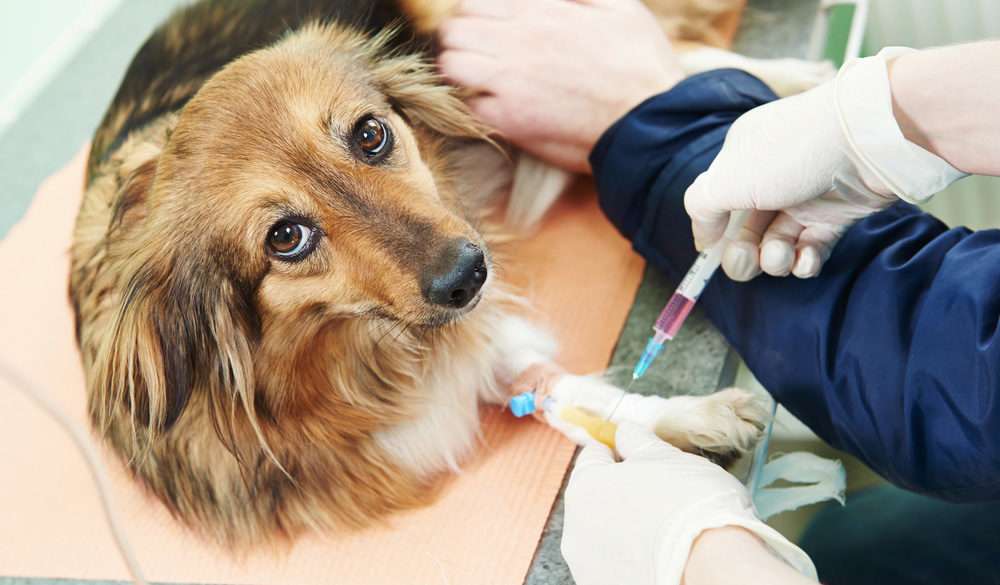Diabetes isn’t just a human ailment; it’s a quite common heath problem for both cats and dogs. Pets with diabetes have an inability to produce adequate insulin, thus resulting in high blood sugar levels that can cause other complications. Certain dog breeds, such as miniature poodles, samoyeds, and miniature schnauzers, are at a higher risk than others -- German shepherds and boxers, for example, have a low natural risk of diabetes. Diabetes usually occurs most commonly in older animals but can crop up at any time in a pet’s lifespan. Researchers note that the prevalence of diabetes is increasing, and that it likely has much to do with a rise in pet obesity rates. Simply put, an obese or overweight animal is more likely to develop diabetes than one in prime physical shape. As such, vets recommend keeping your pet at a healthy weight, ensuring he receives high quality food, and providing him with ample time to exercise and play. Controlling your pet’s caloric intake is the easiest way to be certain he’ll stay at a healthy weight. If you have any questions, consult your veterinarian for advice specific to your pet and your situation. Remember, a healthy lifestyle is one of the best ways to ensure your pet stays happy and fit for as long as possible (advice you can follow for yourself, as well).


